Table of Contents
At least leaving the busy city for a while, a hurried life and going outdoors can be beneficial for several reasons. If you’re lucky with the weather, you get beautiful views of the outdoors from the hilltops and mountains. In addition, you also get to know new places. While out in the fresh air you will also do something for your physical but also mental health, promote weight loss and draw on positive energy. In this article, you will read about what other benefits hiking brings, and we will also provide advice on how to prepare for a hike.
What will hiking and the great outdoors bring you?
Hiking is probably one of the most affordable activities. All you have to do is put on your boots, cross the threshold of the house and explore the nearby woods, or take tougher routes into the mountains. What can you get from walking in the great outdoors?
1. Clear your head and recharge your positive energy
A trip outdoors associated with a hike can be taken as an escape from everyday worries. It will help you move on to other thoughts and probably put a smile on your face. Being surrounded by nature is associated with a good mood, a reduction in anxiety and negative thinking. [1-2]

In one study, participants who walked ninety minutes outdoors were monitored for brain activity. They were shown to have reduced activity in a part of the brain associated with negative emotions and depression. That’s probably one reason why being out in the fresh air can help you feel better. The same amount of time walking through the city had no such effects on the brain. [3]
A hike can also help lower your cortisol levels. It’s a hormone that increases in stressful situations. This is probably due to the combination of the natural environment and the positive influence of activity. You don’t have to drive far for these effects, just a short walk in a nearby park will suffice. [4-5]
If you are looking for more tips on how to reduce stress, read our article Why Is Stress Dangerous and How to Reduce It?
2. You will support brain function and be more creative
Physical activity generally promotes brain functions such as thinking or memory. If you are still studying or have a mentally demanding job, you can benefit from its beneficial effects. This is also evidenced by one study, according to which just ten minutes of walking is enough to improve your skills in solving mathematical tasks. [6]
Hiking can awaken a hidden creativity in you. Just give up modern technology for a few days and go outdoors. This will give your busy brain a rest and support brain functions such as creative thinking, problem-solving or concentration.
This was demonstrated, for example, by a study that observed changes in cognitive function in those who spent four days in nature disconnected from modern technology. After a 4-day stay, they were 50% more successful in tests in terms of creative thinking and problem-solving. In one smaller study, they also discovered that walking causes higher blood flow to the brain. It becomes more oxygenated, and thus supports its function. That, too, is probably one of the reasons for these positive changes. [7-8]
You can read more about how resting in the great outdoors affects you in our article What to Do If You Cannot Sleep? Focus on These 7 Types of Rest.
3. You will sleep better
Lack of exercise may be one reason for poor quality sleep or difficulty falling asleep. Any sport, including hiking, can help. The positive effect of walking on sleep has also been confirmed in a number of studies. For example, in one of them, participants suffering from sleep problems walked daily in the forest for two hours. This resulted in a longer and better quality sleep. Physical activity can be a factor, but also time spent outdoors has a calming effect. [9-10]
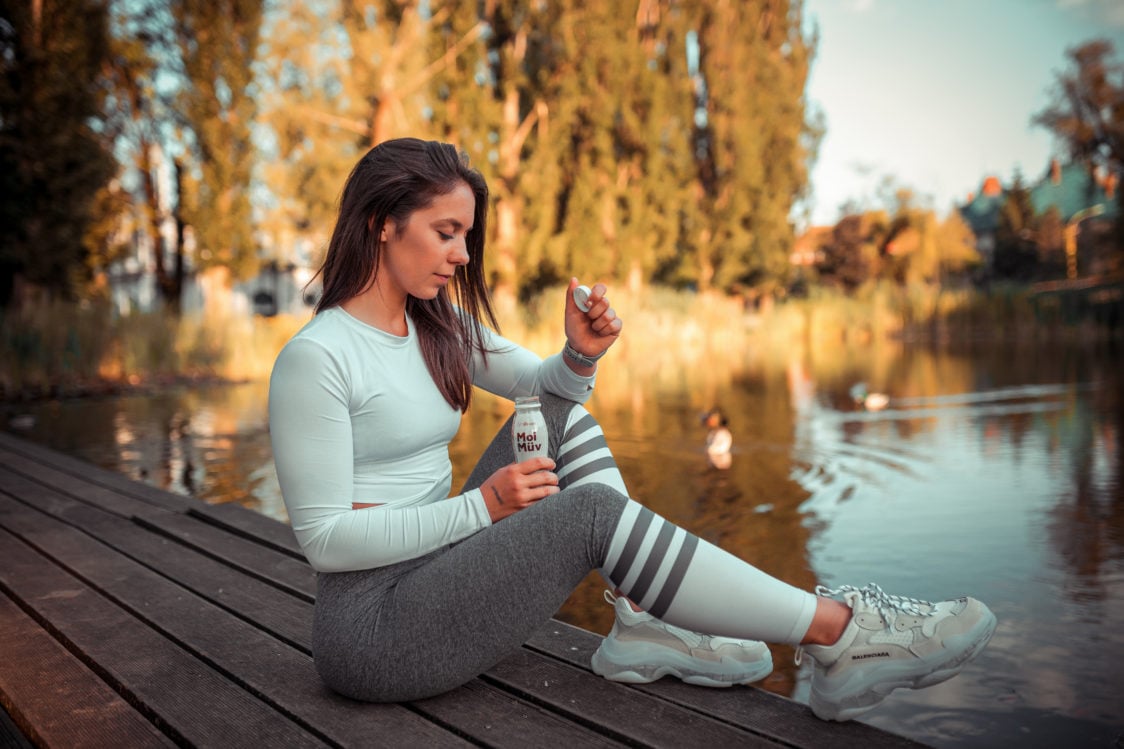
You definitely don’t have to walk through the woods two hours a day. It will be enough if you focus on regular movement of any kind. If you manage to spend some time in nature, the resulting effect in the form of a quality sleep will probably be even greater.
If you’re wondering what you can do to get a better night’s sleep, read How to Fall Asleep Quickly? Try These Simple Tips for A Better Sleep.
You might be interested in these products:
4. You burn a fair amount of calories to promote weight loss
Hiking is considered by some as a non-demanding sport. That may not be true at all. It makes a big difference whether you walk for thirty minutes on the straight in the woods or go for a few day trek in the mountains with a fully loaded backpack. When you go on a bigger adventure, you usually walk for a few hours. This will burn a lot of calories, even though you only have a light backpack on your back, and you are not climbing mountain peaks.
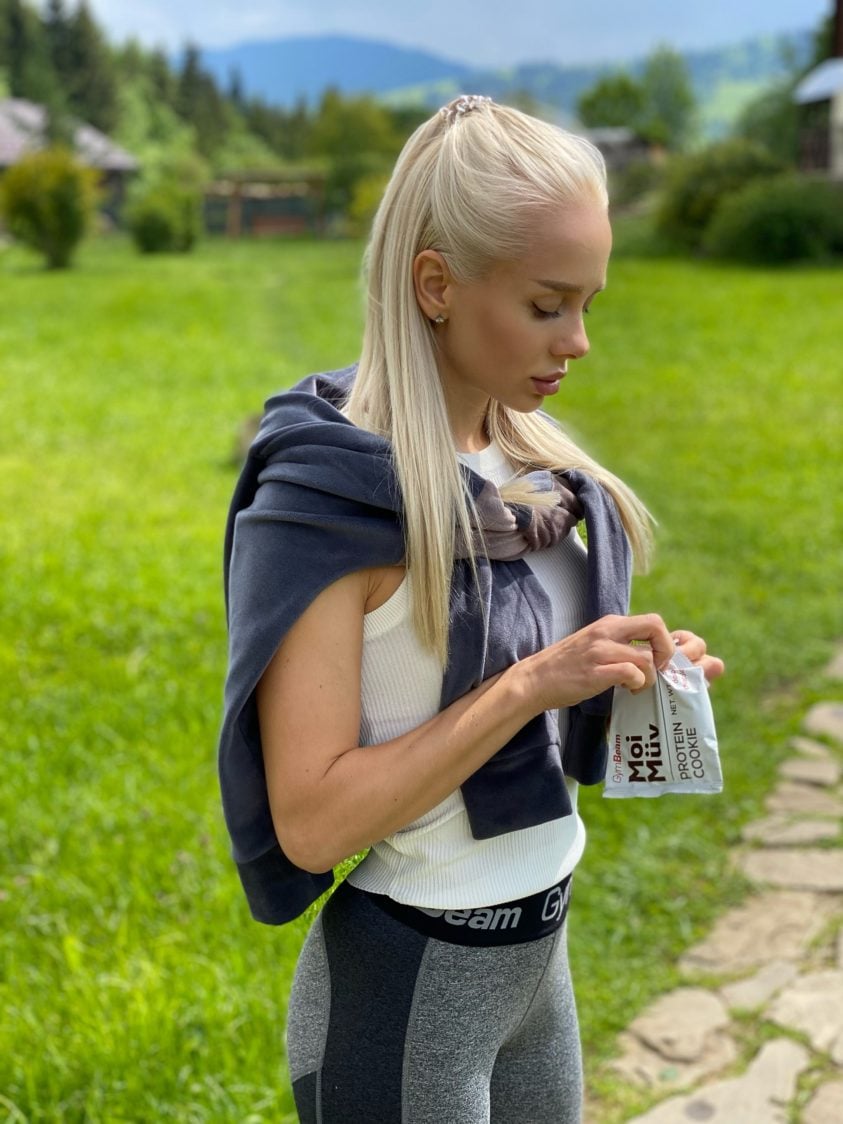
The more energy you burn, the more weight loss you promote. Walking can help with this. It is not as demanding on joints and the musculoskeletal system as other sports. This allows you to use walking as a means of losing weight, particularly those just starting out or unable to do other sporting activities. [11-12]
What affects the amount of calories burned during hiking?
- Type of terrain – the more challenging the terrain, the more energy you burn.
- Length and elevation of the route – not only the kilometres climbed, but also the metres climbed, determine how much energy you use during the hike.
- Altitude – you will typically burn more calories when staying at high altitudes than in lower areas.
- Load in the form of a backpack – added load = more calories burned.
- Walking speed – the faster you go, the more intense the movement will be, and you will burn more calories per unit of time.
- Body weight – if you weigh 60 kg, you burn fewer calories than your 80 kg friend.
- Use of hiking poles – if you take a hike with poles, you will burn an average of 18 – 67% more energy by engaging multiple muscle groups than if you took a trek without poles. [13-15]
Energy output for a 3-hour hike in the mountains without any heavy loads:
- an average 65 kg woman burns roughly 1224 kcal,
- an average 80 kg man burns roughly 1512 kcal. [16]
Both burn energy that is roughly equivalent to half of their normal daily energy intake. Therefore, it is important to have snacks on hand during the hike, perhaps in the form of protein bars, nuts or dried meat. They’ll give you strength for the next part of the hike.
If you enjoy walking and want to lose weight, then surely you shouldn’t miss the article How to Lose Weight Quickly with Walking?
5. Improve your physical condition
Hiking can also be a great way to get in better shape. The ability to adjust the load, duration and intensity makes it suitable for aspiring athletes. For those, it will be ideal to start with shorter hikes in flat terrain and gradually move to hillier terrain. They can also use hiking poles and try Nordic walking as this will engage the muscles of the upper body as they walk, they will be able to handle more difficult terrain and faster movement. [17-18]
Thanks to Nordic walking, it strengthens almost the entire body, does not put as much load on the joints and burns more calories. Better physical condition is important for overall health and easier handling of everyday activities such as stair walking or catching a tram. [17-18]

6. Strengthen your body and improve your balance
When walking, the muscles of the buttocks, thighs and calves are mainly at work. But all the work is not only dependent on them. The centre of the body, or core, must also perform strongly when walking. It maintains an upright posture, which is sometimes challenging in various terrains, such as crossing over rocks or roots on the road. A heavy backpack on the back also requires the back, shoulder and mid-body muscles to be involved. Even more activation of the upper-body muscles is achieved by using hiking poles. When walking in rough terrain, you must often focus on maintaining your balance. It improves your stability and coordination. This will make you less susceptible to injury, such as a sprained ankle. [19-22]
Looking for exercises for better stability and coordination? Then you shouldn’t miss our article the 10 Best Exercises with a Balance Pad to Improve Balance, Strengthen Your Back and Whole Body.
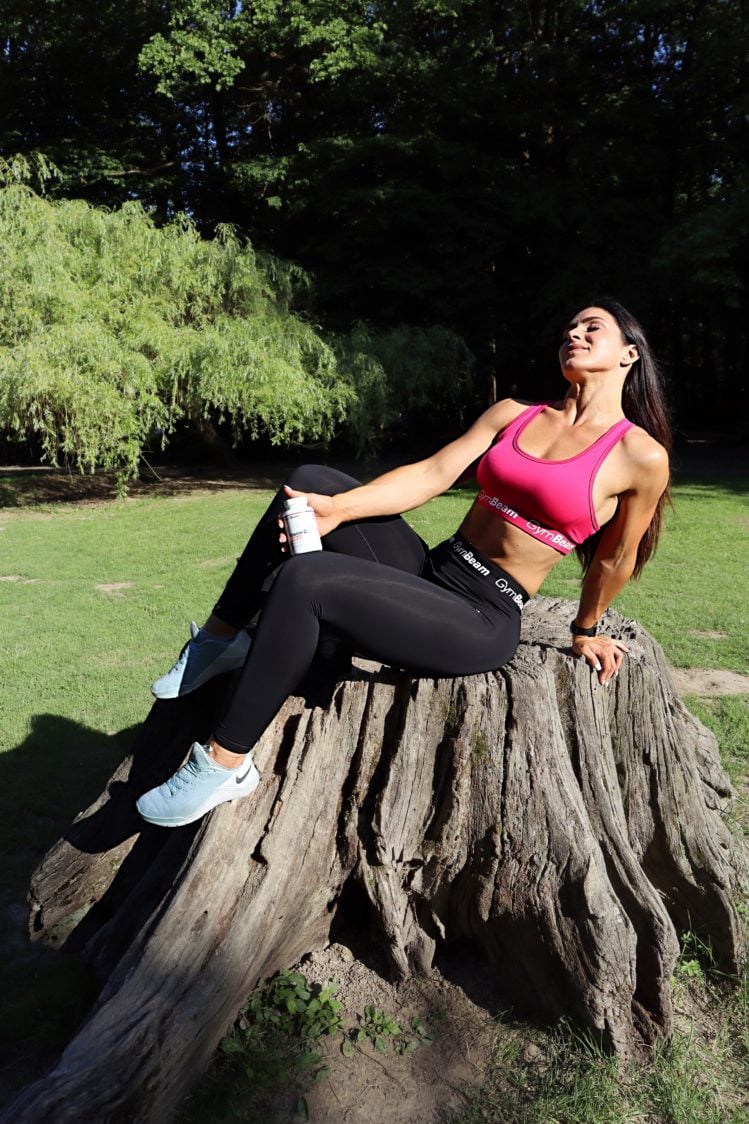
7. Promotes immunity, intake of vitamin D, plus getting a tan
Modern humans spend more and more time in confined spaces and move little, which can manifest itself not only in the form of psychological disorders, but also in the deterioration of immune functions. According to studies, walking can cause an increase in white blood cells, which are an integral part of immunity. Thanks to this, hiking has a positive effect on the immune system and overall resistance of the body. [23-24]
Being outdoors also plays an important role. When you spend time amongst the trees, you breathe the substances they produce. They are called phytoncides and protect the trees from pests. The human body responds by increasing the activity and number of a type of white blood cell called natural killers (NK cells). They are involved in protecting against viruses and cancer. According to studies, this positive effect can persist for several days, even weeks after returning from the great outdoors. [25-28]
When the weather is clear and the sun shines on your hike, you can stock up on a decent dose of vitamin D. When the skin is exposed to the sun, this important substance is produced. Vitamin D promotes normal immune system function as well as bone health. So don’t be afraid to take off your shirt and show off your sporty body.
At the same time, you will get a little tanned, but don’t forget to use sunscreen with a protective UV filter. You can support the resulting tan effect with supplements containing antioxidants, beta-carotene and other substances. [29]
Are you interested in other ways to maximise your immunity? Then you shouldn’t miss our article 15 Ways to Strengthen Your Immune System and Protect Your Health.
8. You will promote heart and lung health
Hiking is a popular form of cardio. As you walk, your blood flows through your veins and your heart starts beating faster, which you will recognize at a higher heart rate. If you hike regularly, your cardiovascular system will get used to the extra workload, making it stronger and more resilient.
Physical activity generally helps to lower resting heart rate, normalize blood pressure and blood cholesterol levels. These are important indicators of heart and blood vessel health. Walking faster on the flat or uphill will give you a good breathing workout, too. But if you go to the great outdoors regularly, you will also feel positive effects in this respect. Your lung capacity will improve, and you will breathe more efficiently. [30-32]
9. You don’t need any special equipment or skills
Unless you’re about to climb via ferratas or eight-thousanders, you don’t need any special equipment or skills. You just need to put on sturdy shoes and go. You can walk anywhere, but to get all the benefits of hiking it is best to look for routes that wind through the great outdoors and explore the surrounding forests, hills or mountains.
10. Spend quality time with your family and friends
Go hiking together with your family and friends. You’ll spend quality time together and get to know each other on a deeper level. You will have shared experiences that you will remember with a smile for years to come. When planning the route, think about the physical condition and experience of all the hiking participants. This will help you all enjoy the hike and will not deter anyone from going on hikes together in the future.
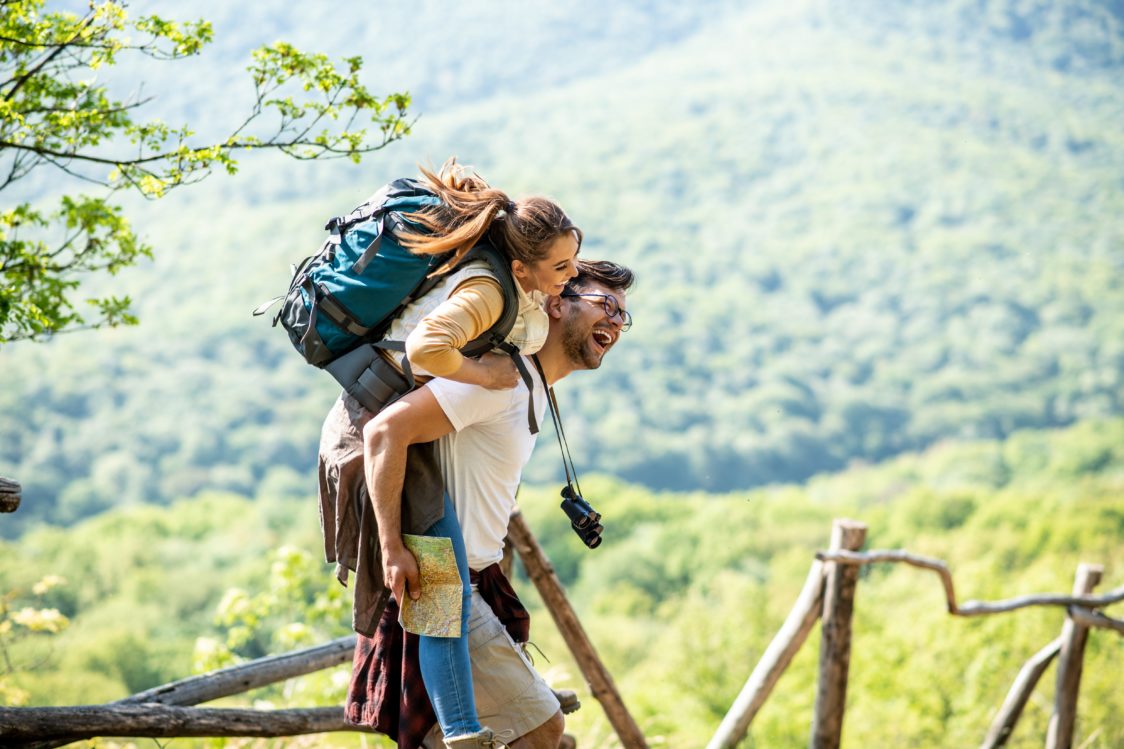
How to prepare for a hike and what to take with you?
When hiking, the key is: “Better to be prepared than surprised.” This applies especially to the mountains, where you move away from modern civilization. The more demanding and longer the route, the more you need to think about what you’re taking with you. You don’t want to carry a heavy backpack full of impractical items, but at the same time, you can’t afford to forget something important. Equipment will vary for day trips and multi-day trips. What should you never forget?
1. Plan your route
Adjust it to your physical condition and experience. Also, think about what time the sun goes down, you probably don’t want to walk in the woods and mountains in the dark. Print your planned route with your surroundings on paper to be available at any time, or save it in offline map mode in the mobile app.
2. Check weather conditions beforehand
In the mountains, especially, the weather can change from one minute to the next. It’s a good to have an idea of whether you’re in for sunny weather with clear skies or a rainy day then you can prepare your clothes and shoes accordingly.

3. Prepare appropriate clothing and footwear
When choosing your footwear, follow the rule: The worse the terrain and heavier the load on the back, the sturdier the footwear. You can handle easy routes with low and light footwear. Ankle-supported high boots will come in handy on longer and more demanding hikes. On multi-day routes or in bad weather, you’ll make a good choice with shoes that won’t leak water and keep you dry.
For clothing, rely on lightweight, functional materials to remove sweat. Even in summer, remember to pack a light waterproof jacket in case of rain or cooler weather. Better to have a few layers and pack at least one T-shirt to change into. And in case you’re going to hit the higher mountains, think about the possibility of lower temperatures. So you’d better pack long leggings or pants, a long-sleeved T-shirt and a warmer sweatshirt.
4. Prepare other important items that might come in handy
Take essential medications, blister patches, bandages and disinfectant in case of injury. Charge your cell phone, and a power bank might come in handy. In the mountains you will definitely need good quality sunglasses, sunscreen and a cap. In case you stay on the route longer than expected, take a headlight and spare torches too. Also, be sure to inform someone close to you about where you’re going.
5. Pack food and water for your travels
At home, feel free to make some toast with spread or nut butter and jam. Add protein bars, nuts, dried meat or energy gel. Also, don’t forget a large water bottle at home that you can taste with an ion supply drink or BCAA. Magnesium shots will be useful for preventing cramps. If you’re going on multi-day trips, you can use pre-prepared meals that just need to be warmed up.
6. Enjoy it to the full
A new adventure awaits and you have everything ready? Hit the road and enjoy.
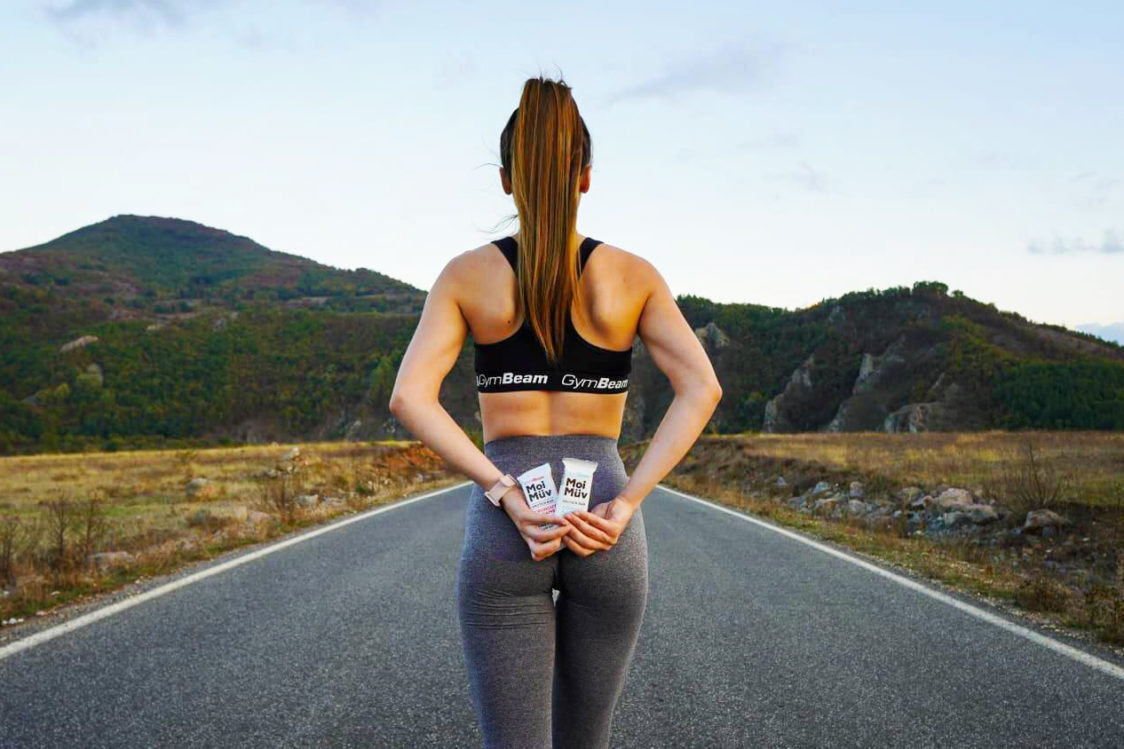
What should you remember?
Hiking is a great sport. It lets you experience the beauty of nature, new places and draw on positive energy. It will also help you with weight loss, a better physique and stress management. It also promotes overall health and brain function, making you more efficient at work or studies.
You don’t need any special equipment, and you can go quietly within the vicinity of your home. Just plan your route, dress well, pack food along with any other necessary equipment, and you can go on an adventure. Take your friends or family with you and go on adventures together.
Are you a fan of hiking, or have you not yet been swept up by the sport? If you have friends who have not yet fallen under the spell of hiking, share this article with them, so they can also learn all about its benefits.
[1] ScienceDirect.The benefits of nature experience: Improved affect and cognition – https://www.sciencedirect.com/science/article/abs/pii/S0169204615000286?via%3Dihu
[2] University, S. Stanford researchers find mental health prescription: Nature. – https://news.stanford.edu/2015/06/30/hiking-mental-health-063015/
[3] Bratman, G. N., Hamilton, J. P., Hahn, K. S., Daily, G. C., & Gross, J. J. Nature experience reduces rumination and subgenual prefrontal cortex activation. – https://doi.org/10.1073/pnas.1510459112
[4] Niedermeier, M., Grafetstätter, C., Hartl, A., & Kopp, M. A Randomized Crossover Trial on Acute Stress-Related Physiological Responses to Mountain Hiking. – https://doi.org/10.3390/ijerph14080905
[5] Neuroscience News. Green space is good for your mental health: The nearer the better! – https://neurosciencenews.com/green-space-mental-health-14757/
[6] Mualem, R., Leisman, G., Zbedat, Y., Ganem, S., Mualem, O., Amaria, M., Kozle, A., Khayat-Moughrabi, S., & Ornai, A. The Effect of Movement on Cognitive Performance. – https://doi.org/10.3389/fpubh.2018.00100
[7] Atchley, R. A., Strayer, D. L., & Atchley, P. Creativity in the Wild: Improving Creative Reasoning through Immersion in Natural Settings. – https://doi.org/10.1371/journal.pone.0051474
[8] ScienceDaily.How walking benefits the brain: Researchers show that foot’s impact helps control, increase the amount of blood sent to the brain.– https://www.sciencedaily.com/releases/2017/04/170424141340.htm
[9] A before and after comparison of the effects of forest walking on the sleep of a community-based sample of people with sleep complaints. – https://www.ncbi.nlm.nih.gov/pmc/articles/PMC3216244/
[10] Grigsby-Toussaint, D. S., Turi, K. N., Krupa, M., Williams, N. J., Pandi-Perumal, S. K., & Jean-Louis, G. Sleep insufficiency and the natural environment: Results from the US Behavioral Risk Factor Surveillance System Survey. – https://doi.org/10.1016/j.ypmed.2015.07.011
[11] Neumayr, G., Fries, D., Mittermayer, M., Humpeler, E., Klingler, A., Schobersberger, W., Spiesberger, R., Pokan, R., Schmid, P., & Berent, R. Effects of hiking at moderate and low altitude on cardiovascular parameters in male patients with metabolic syndrome: Austrian Moderate Altitude Study. – https://doi.org/10.1016/j.wem.2014.01.003
[12] Hong, H.-R., Jeong, J.-O., Kong, J.-Y., Lee, S.-H., Yang, S.-H., Ha, C.-D., & Kang, H.-S. Effect of walking exercise on abdominal fat, insulin resistance and serum cytokines in obese women. – https://doi.org/10.5717/jenb.2014.18.3.277
[13] Harvard Health. Fitness trend: Nordic walking. – https://www.health.harvard.edu/staying-healthy/fitness-trend-nordic-walking
[14] Szafraniec, R., Szczypta, K., Fortuna, M., & Demczyszak, I. EFFECT OF 3-WEEK NORDIC WALKING TRAINING ON THE LEVEL OF AEROBIC PHYSICAL FITNESS AND BODY COMPOSITION OF YOUNG WOMEN. – https://www.researchgate.net/publication/292996596_EFFECT_OF_3-WEEK_NORDIC_WALKING_TRAINING_ON_THE_LEVEL_OF_AEROBIC_PHYSICAL_FITNESS_AND_BODY_COMPOSITION_OF_YOUNG_WOMEN
[15] Palmer, B. F., & Clegg, D. J.. Ascent to Altitude as a Weight Loss Method: The Good and Bad of Hypoxia Inducible Factor Activation. – https://doi.org/10.1002/oby.20499
[16] Compendium of Physical Activities. Walking – https://sites.google.com/site/compendiumofphysicalactivities/Activity-Categories/walking
[17] Shape.These Benefits of Hiking Will Make You Want to Hit the Trails. – https://www.shape.com/fitness/cardio/benefits-hiking-will-make-you-want-hit-trails
[18] Lee, S.-H., Seo, B.-D., & Chung, S.-M. The Effect of Walking Exercise on Physical Fitness and Serum Lipids in Obese Middle-aged Women: Pilot Study. – https://doi.org/10.1589/jpts.25.1533
[19] Corliss, J. Health benefits of hiking: Raise your heart rate and your mood. – https://www.health.harvard.edu/blog/health-benefits-of-hiking-raise-your-heart-rate-and-your-mood-2016092810414
[20] Pellegrini, B., Peyré-Tartaruga, L. A., Zoppirolli, C., Bortolan, L., Bacchi, E., Figard-Fabre, H., & Schena, F. Exploring Muscle Activation during Nordic Walking: A Comparison between Conventional and Uphill Walking. – https://doi.org/10.1371/journal.pone.0138906
[21] Han, J., Anson, J., Waddington, G., Adams, R., & Liu, Y. The Role of Ankle Proprioception for Balance Control in relation to Sports Performance and Injury. – https://doi.org/10.1155/2015/842804
[22] Benefits of Hiking.Trails & Hiking (U.S. National Park Service). – https://www.nps.gov/subjects/trails/benefits-of-hiking.htm
[23] ScienceDaily. Boost your immune system, shake off stress by walking in the woods. https://www.sciencedaily.com/releases/2013/10/131003132112.htm
[24] Mitten, D., Overholt, J. R., Haynes, F. I., D’Amore, C. C., & Ady, J. C. Hiking. – https://doi.org/10.1177/1559827616658229
[25] Li, Q., Kobayashi, M., Wakayama, Y., Inagaki, H., Katsumata, M., Hirata, Y., Hirata, K., Shimizu, T., Kawada, T., Park, B. J., Ohira, T., Kagawa, T., & Miyazaki, Y. Effect of phytoncide from trees on human natural killer cell function. – https://doi.org/10.1177/039463200902200410
[26] Li, Q. Effect of forest bathing trips on human immune function. – https://doi.org/10.1007/s12199-008-0068-3
[27] NYS Dept. Immerse Yourself in a Forest for Better Health. – https://www.dec.ny.gov/lands/90720.html
[28] Tsao, T.-M., Tsai, M.-J., Hwang, J.-S., Cheng, W.-F., Wu, C.-F., Chou, C.-C. K., & Su, T.-C. Health effects of a forest environment on natural killer cells in humans: An observational pilot study. – https://doi.org/10.18632/oncotarget.24741
[29] Healthline. How to Safely Get Vitamin D From The Sun. https://www.healthline.com/nutrition/vitamin-d-from-sun
[30] Kang, S.-J. Trekking exercise promotes cardiovascular health and fitness benefits in older obese women. – https://doi.org/10.12965/jer.140136
[31] Pinckard, K., Baskin, K. K., & Stanford, K. I. Effects of Exercise to Improve Cardiovascular Health. – https://doi.org/10.3389/fcvm.2019.00069
[32] Lung Health Instititute. Benefits of Walking Outdoors for Lung Disease. – https://lunginstitute.com/blog/breath-fresh-air-walking-outdoors-lung-health/

